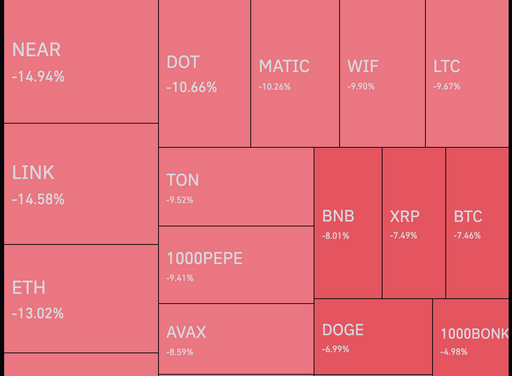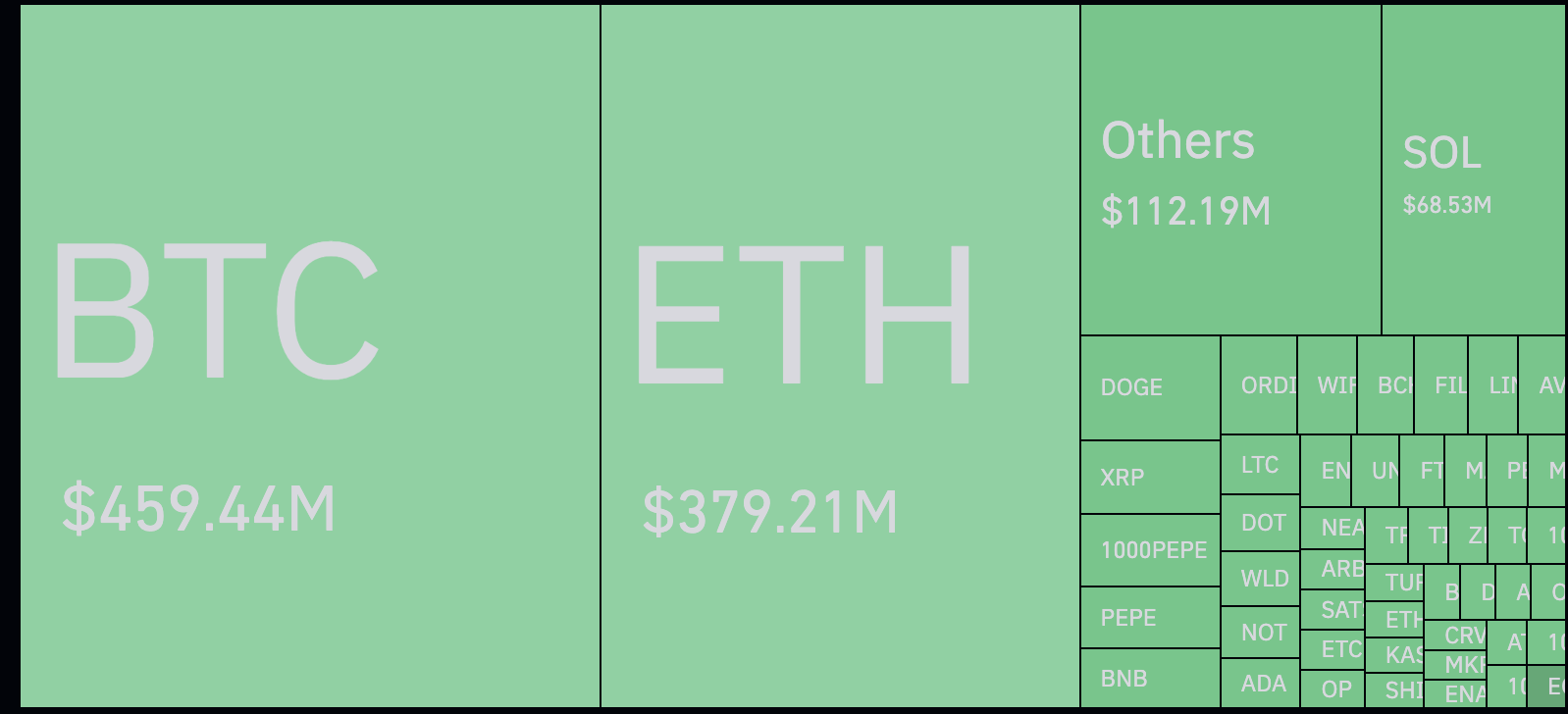
Crypto Market Meltdown: $1.2 Billion Wiped Out Amidst Recession Fears, Rate Hikes, and Looming War – What's the Real Culprit?
Crypto bloodbath, billions lost as Bitcoin, Ethereum, and Solana crash - DeFi stands strong amidst centralized exchange outages.
- Published:
- Edited:
In a dramatic 24-hour period, the cryptocurrency market experienced a massive crash, wiping out $1.2 billion in value and liquidating over 316,000 traders. Bitcoin, the leading cryptocurrency, plunged below the $50,000 mark, while Ethereum, the second-largest, plummeted to $2,200; Solana also suffered a significant drawdown, falling 17% to a low of $110.
 24-Hours Liquidation Heatmap (Data by Coinglass)
24-Hours Liquidation Heatmap (Data by Coinglass)
The crash was particularly brutal for Ethereum, which saw the largest decline among the top 100 cryptocurrencies by market capitalization. The total crypto market open interest has been slashed by $12 billion in the past week alone.
US Recession Fears Trigger Global Market Panic
The catalyst for the crypto crash was the release of weaker-than-expected US jobs data, which sparked fears that the US economy could be heading into a recession. The Sahm Rule, a widely followed recession indicator, flashed a warning sign, sending shockwaves through global markets.
The volatility index, a measure of market fear, spiked to levels not seen since the 2008 financial crisis and the COVID-19 crash, signaling widespread panic among investors.
Fed Rate Hikes and Warren Buffett's Apple Sale Add to Market Woes
The Federal Reserve's aggressive interest rate hikes over the past two years, aimed at curbing inflation, have also been a contributing factor to the market turmoil. Investors are increasingly concerned that the Fed may have gone too far, tightening monetary policy to the point where it could trigger a recession.
Adding to the market jitters was Warren Buffett's Berkshire Hathaway's decision to sell off 55.8% of its Apple stock, raising concerns about the tech giant's prospects and the overall health of the US stock market.
Geopolitical Tensions and Looming War Fears Further Fuel Market Uncertainty
The escalating tensions between Israel and Iran, with Iran vowing to retaliate for a recent attack on its soil, have further added to the market uncertainty. The prospect of a new major conflict in the Middle East is raising concerns about the potential impact on global oil prices and economic stability.
DeFi Shines Amidst Centralized Crypto Service Outages
Interestingly, while major centralized crypto platforms like Robinhood, Fidelity, and Charles Schwab experienced outages during this market volatility, the decentralized finance (DeFi) market continued to function as usual, processing liquidations and demonstrating the resilience and trustless nature of this emerging financial system.
Solana-based DeFi giant Kamino Finance reported processing $4 million in liquidations, the largest amount since its inception, highlighting the protocol's robustness under pressure. This event underscores DeFi's potential to bring much-needed transparency and stability to the traditional financial markets.
What to Expect Next?
Market analysts and experts are divided on whether the recent market turmoil is a sign of an impending recession or just a temporary setback.
With the US presidential elections on the horizon and the possibility of recession increasing, the markets are likely to remain volatile in the coming months. The ongoing geopolitical tensions in the Middle East also pose a significant risk to the global economy and financial markets.
Christian Mueller-Glissman, a market analyst at Goldman Sachs, described the recent market dip as a "somewhat healthy correction."
Some are calling on the Federal Reserve to convene an emergency meeting and cut interest rates to calm the markets, while others are urging investors to remain patient and ride out the storm.
In the meantime, crypto investors are bracing for more volatility and uncertainty as the market continues to react to the broader economic and geopolitical landscape.


